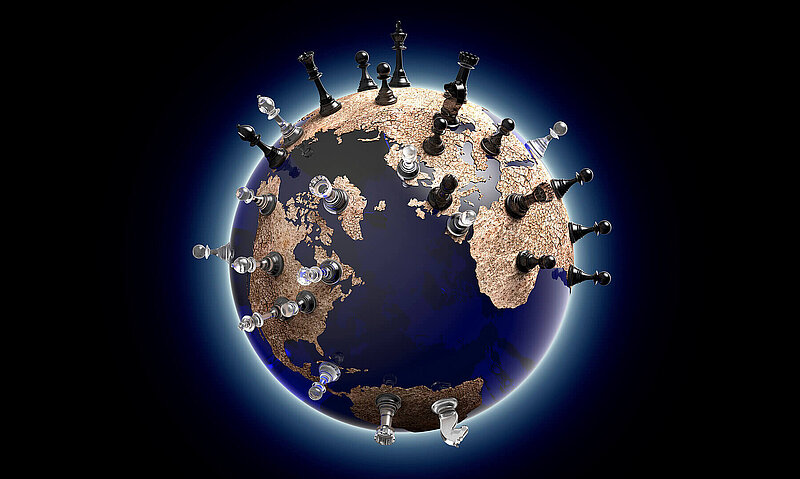
Researchers at the Hertie School examine foreign cultural policy in unstable times.
In 2021, Germany spent 2.3 billion euros on foreign cultural policy. That same year, China invested around four times this amount, 8.15 billion euros, in its worldwide cultural diplomacy. China is not the only autocratic state that has realised the potential of soft power – the use of culture, education, science diplomacy and media to influence other countries. According to a new report by Hertie School Senior Professor of Sociology Helmut K. Anheier, Affiliate Research Fellow Edward Knudsen and Regina A. List, soft power will be central to negotiating between rival blocs, fending off unfriendly influences, defusing tensions between the blocs, and building bridges between countries with strained political relations.
The report, “Soft power and the new geopolitics: Germany in comparative perspective”, is jointly published by ifa and the Hertie School and will be discussed by a panel including principal investigator Helmut K. Anheier and leading experts at the Hertie School on 14 December.
Soft power a new hard currency in international relations
The report examines nine major international players – Germany, the United States, France, the United Kingdom, China, Russia, Saudi Arabia, Turkey and India – comparing their soft power strategies and activities from the 2010s with what they are today, and in the context of changing economic and security policy concerns. The authors note that since the 2000s, many countries, including autocratic countries such as China, Russia and Saudi Arabia, have recognised the importance of successful soft power initiatives in international relations.
“Soft power has become a hard currency in international relations,” says Anheier. “Germany has largely profited from its appeal as an economically strong and culturally rich country that usually scores high on likeability lists. However, as both external geopolitical tensions and internal nationalist political voices are on the rise, Germany needs to reassess its strategies to successfully navigate the turbulent waters of soft power politics.”
In the authors’ view, Germany must adapt its foreign cultural policy to the new geopolitical reality to build bridges between communities and strengthen its positive perception worldwide. Germany’s soft power strategies should invest more in expanding cultural exchanges, its network of schools abroad, its science diplomacy, and especially its international media outreach while fighting extremism – including at home – the authors argue. “Having decided to invest more in its armed forces, a decision to spend less on soft power would be short-sighted and undermine Germany’s national security and the international liberal order in the long run,” concludes Anheier.
Read the full ifa report.
A panel discussion including author Helmut K. Anheier, Member of the German Bundestag Michelle Müntefering, Professorial Research Fellow at the London School of Economics Iain Begg and ifa Secretary-General Gitte Zschoch will be held at the Hertie School on 14 December in the Henrik Enderlein Forum. Register via ifa to join the discussion.
More about our experts
-
Helmut K. Anheier, Senior Professor of Sociology, past President
-
Edward Knudsen, Research Associate for the Dahrendorf Forum
